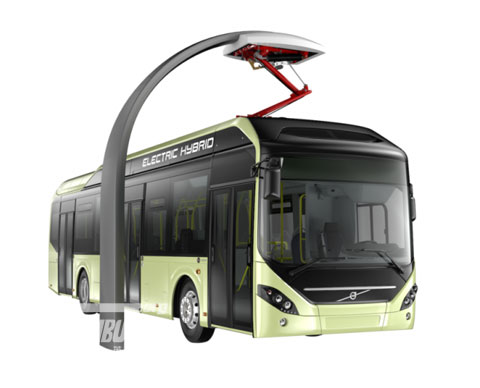
The research forecasts significant growth in the global industry in the next years, with analysts forecasting that a lack of agreed-upon standards would be a stumbling block for the market during the projected period. The research includes an assessment of regional development, as well as market value, sector reach, and spending patterns. The investigation of the top Hybrid Electric Bus market player’s growth in the target sector covers new projects with SWOT analysis, speculation returns, innovations, and venture attainability investigation. The key players studied in the report include: The report covers extensive analysis of the key market players in the market, along with their business overview, expansion plans, and strategies.
#VOLVO BUS ELECTRIC DOWNLOAD#
Get | Download Sample Copy with TOC, Graphs & List of Figures Similarly, the study’s authors believe that this well-known record is the consequence of high-end research activities, a number of evaluations, and a range of main components achieved by a variety of instruments that constitute the worldwide Hybrid Electric Bus markets development throughout the predicted period. The study involves a thorough evaluation of industry rivalry dynamics in order to offer consumers a competitive advantage. A regional analysis has been provided in terms of market share, development prospects, and key nations. It presents a demand-supply picture for each end-use market. The first models of Volvo’s new generation of electric buses are expected to become operational at the end of 2018, and are sold as a turnkey solution with Volvo taking care of all maintenance of both vehicles and batteries at a fixed monthly cost.New Jersey, United States,- The Hybrid Electric Bus Market study offers information on each vendor’s revenue, trends, prospects, and industry profiles. The Volvo 7900 Electric is making its debut at the Busworld international bus fair in Kortrijk, Belgium, this week. For instance, CCS is suitable for high-power charging when the bus is parked in the depot,” said Johnny Lidman, Product Manager City Buses Europe at Volvo Buses. “Operators can choose the charge interface that best suits each particular occasion. On shorter routes, they can even run throughout the day and be charged at night,” said Håkan Agnevall, President of Volvo Buses.

Instead, the batteries can be charged once traffic is at off-peak levels. During peak hours the buses can operate continuously without stopping to recharge. “This is a very important reinforcement of our electromobility product range, giving our customers maximum flexibility in their daily operations.

As well as the fast-charging OppCharge system 7900 Electric models can now also be charged by CCS, the European standard mains to vehicle system. The 7900 Electric can now be ordered with a choice of 150, 200 and 250 kWh battery packs for increased range, while the charging options have also been increased.

The updated 7900 Electric offers increased versatility to make it viable in a wider range of duty cycles.
#VOLVO BUS ELECTRIC TRIAL#
The Harrogate Bus Company will be the first UK firm to operate the all-electric version from 2018, while it is also currently on trial in Greater Manchester. The UK is the largest market for Volvo’s hybrid buses with over 700 in operation around the country since the first delivery in 2009. Volvo has announced a new version of its EV 7900 Electric bus with increased range and charging options.


 0 kommentar(er)
0 kommentar(er)
